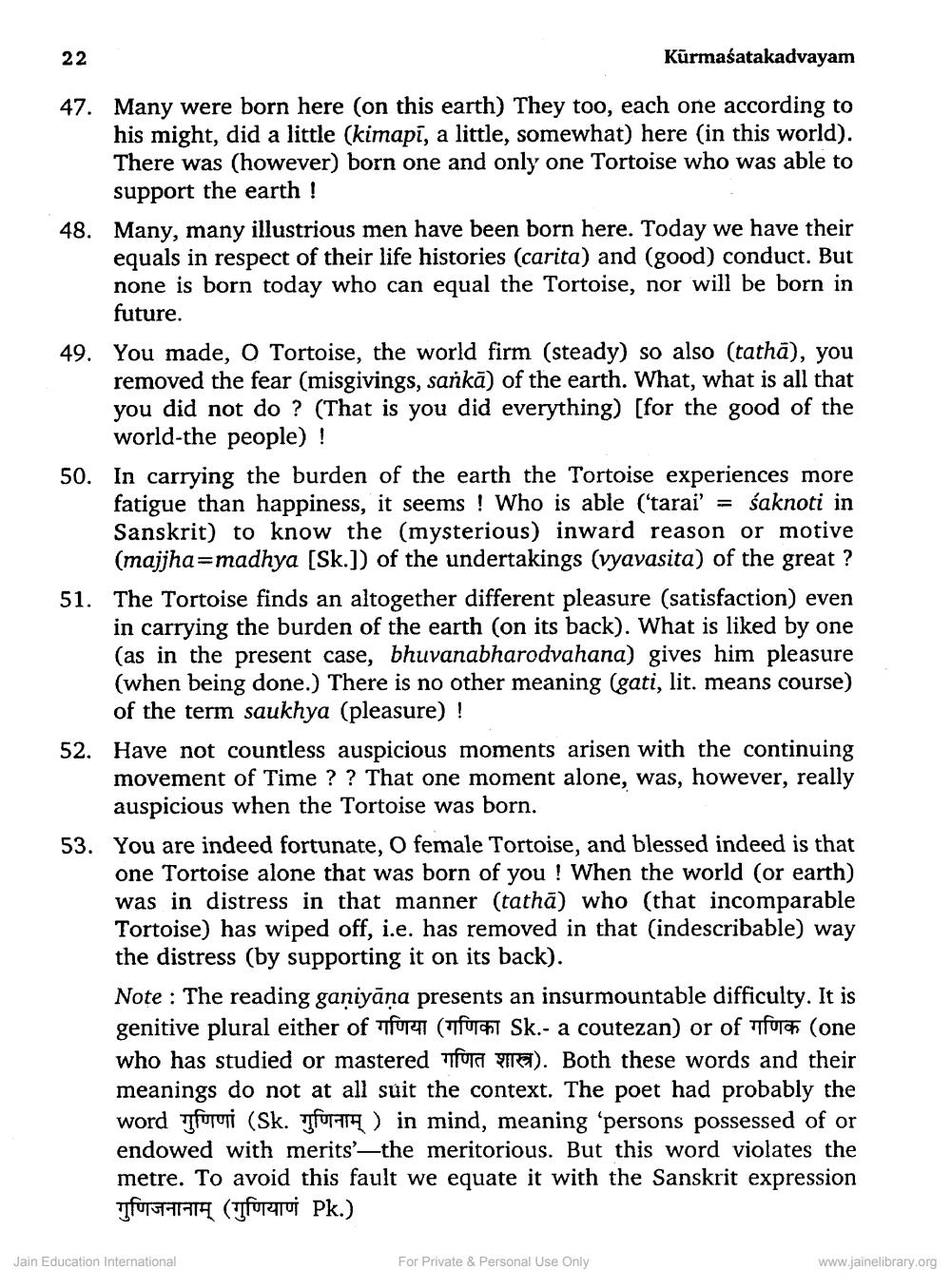________________
22
Kūrmaśatakadvayam
47. Many were born here (on this earth) They too, each one according to
his might, did a little (kimapi, a little, somewhat) here (in this world). There was (however) born one and only one Tortoise who was able to support the earth ! Many, many illustrious men have been born here. Today we have their equals in respect of their life histories (carita) and (good) conduct. But none is born today who can equal the Tortoise, nor will be born in future.
48.
52.
49. You made, O Tortoise, the world firm (steady) so also (tathā), you
removed the fear (misgivings, sankā) of the earth. What, what is all that you did not do ? (That is you did everything) [for the good of the
world-the people) ! 50. In carrying the burden of the earth the Tortoise experiences more
fatigue than happiness, it seems ! Who is able ('tarai' = saknoti in Sanskrit) to know the (mysterious) inward reason or motive
(majjha=madhya (Sk.]) of the undertakings (vyavasita) of the great ? 51. The Tortoise finds an altogether different pleasure (satisfaction) even
in carrying the burden of the earth (on its back). What is liked by one (as in the present case, bhuvanabharodvahana) gives him pleasure (when being done.) There is no other meaning (gati, lit. means course) of the term saukhya (pleasure)! Have not countless auspicious moments arisen with the continuing movement of Time ? ? That one moment alone, was, however, really
auspicious when the Tortoise was born. 53. You are indeed fortunate, O female Tortoise, and blessed indeed is that
one Tortoise alone that was born of you! When the world (or earth) was in distress in that manner (tathā) who (that incomparable Tortoise) has wiped off, i.e. has removed in that (indescribable) way the distress (by supporting it on its back). Note : The reading ganiyāņa presents an insurmountable difficulty. It is genitive plural either of गणिया (गणिका Sk.- a coutezan) or of गणिक (one who has studied or mastered To Tra). Both these words and their meanings do not at all suit the context. The poet had probably the word ufururi (Sk. vfurar ) in mind, meaning 'persons possessed of or endowed with merits'—the meritorious. But this word violates the metre. To avoid this fault we equate it with the Sanskrit expression TfUSHITA (foliu Pk.)
Jain Education International
For Private & Personal Use Only
www.jainelibrary.org




